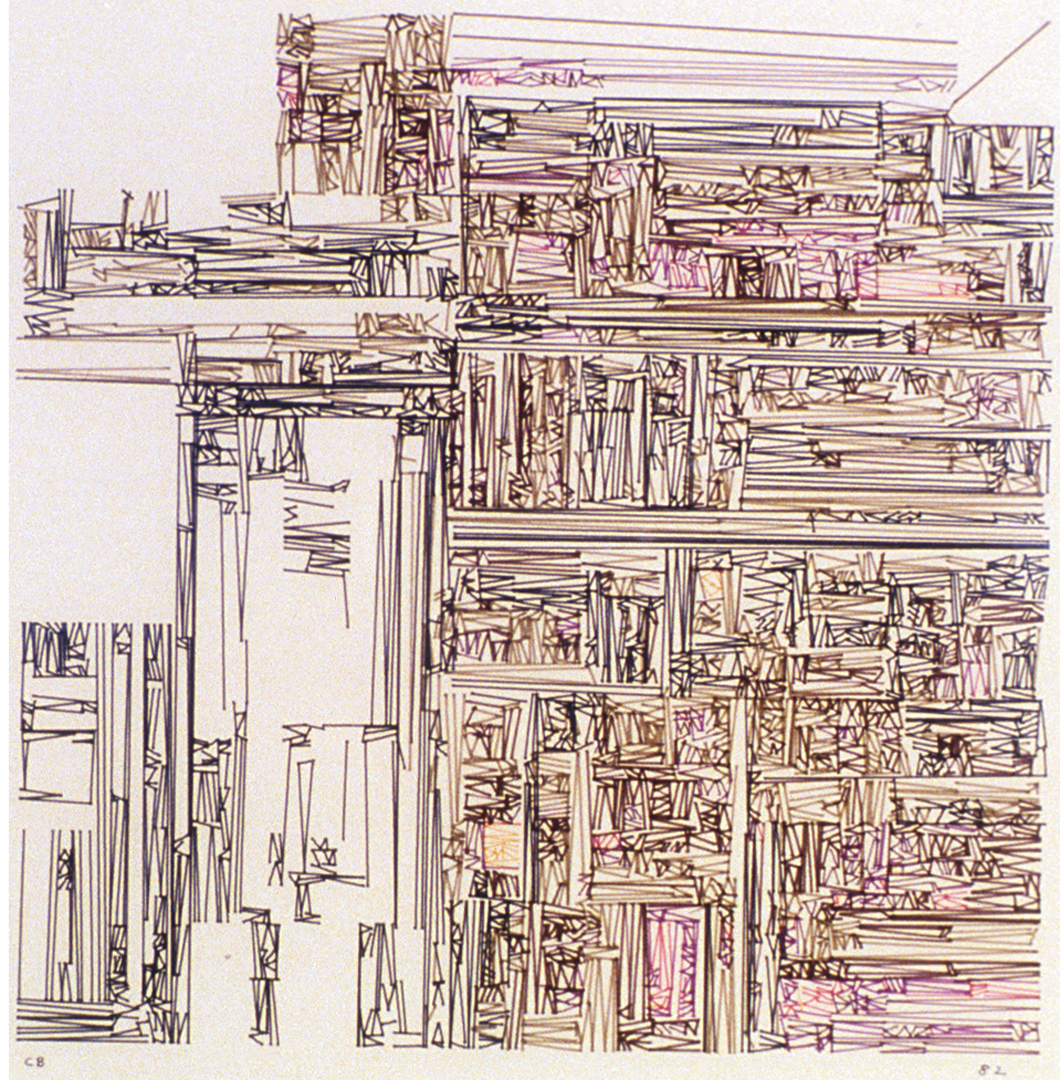Colette Bangert, Charles Bangert: Grass Series V
Artist(s):
Title:
- Grass Series V
Exhibition:
- SIGGRAPH 1982: Art Show
-
More artworks from SIGGRAPH 1982:


Collection:
Creation Year:
- 1982
Medium:
- Plotter drawing
Size:
- 11 x 13 1/2 in
Category:
Artist Statement:
We have been thinking about composition for many years. In the context of picture making, ‘composition’ refers to the placement of a figure in the picture space. The type of picture or drawing makes no difference to the problem – ‘where shall the first mark go?’ Artists, even those working without benefit of computer, know that the very first mark is the key to what the work will become. Computer artists cannot just lay down the first brush stroke on a canvas wherever their intuition tells them. Some part of the program, some variable values, or some block of code represents the decision to place the first market a particular place. That part of the program must be thought out ahead of time.
The placement of the first mark and the control of a drawing’s white spaces are essential elements of the series of programs called GRASS.
To help us solve our placement problem we used one of the standard ideas of recent computer graphics – divide and conquer, which also goes under the name ‘subdivision’. This strategy can be stated very simply – if the problem which faces you looks too hard, split it into two parts, store one of the parts, and work on the other. Chance are, the part of the problem you are now working will be easier to solve. If not, split this part into two, store one, and work on the other. Later, if necessary, you can figure out how to put the parts back together.
‘Divide and conquer’ works, when it works, because of limited resolution. If you start splitting a picture into pieces, you will finally get to a part of the picture which is the same size as the pen stroke.
Going back to the original question of where to place the first mark in a drawing, we just admit that we don’t know where it should go. The drawing rectangle is divided into two parts. Now we have two rectangles. Each of these is smaller than the first one. Put one of these rectangles aside and consider where to put the first mark in the other. This process is continued until we are working with a rectangle which is fairly small. Then we just draw a simple line and start looking at the rectangles which were put aside. There are other decisions – how to split the rectangles in two and where to draw in the smallest – which we have not discussed, but this is the basic idea.
The programs in the GRASS series have gone through an evolutionary process. The drawings you see were run on an Intertec SuperBrain, using a Watanabe plotter. The program is written in Microsoft BASIC.
Technical Information:
Hardware: Intertec Superbrain, Watanabe WX 4671 plotter
Other Information:
This unique artwork is available in the Victoria and Albert Museum.
All Works by the Artist(s) in This Archive:
- Colette Bangert
-
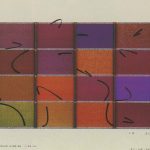
Circe's Window
[SIGGRAPH 1986] -
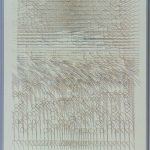
Large Landscape: Ochre & Black
[SIGGRAPH 1986] -
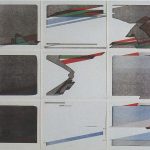
Dawn's Diagonals
[SIGGRAPH 1989] -
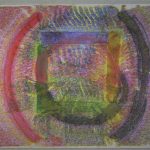
The Rose's Own Garden: Its View
[SIGGRAPH 1998] -
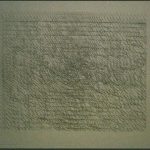
Large Landscape: Curved and Coiled
[SIGGRAPH 1998] -
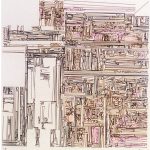
Grass Series V
[SIGGRAPH 1982] -
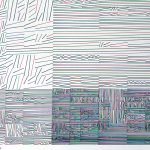
Grass: Series II 80-11-comp-K
[SIGGRAPH 1981] -
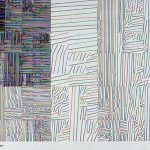
Grass: Series II 80-11-comp-c
[SIGGRAPH 1981] -
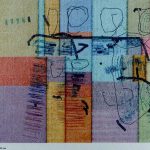
Katie-Bright
[SIGGRAPH 1987] -
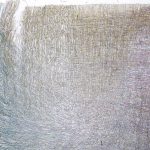
Landlace
[SIGGRAPH 1986] -
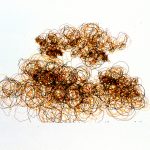
Structure Study II: Yellow, Red, Brown, ...
[SIGGRAPH 1986] -
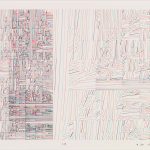
Grass: Series I
[SIGGRAPH 1986] -
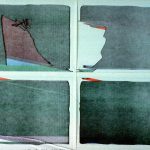
Dawn's Leaf
[SIGGRAPH 1989] -
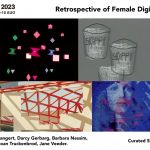
Retrospective of Female Digital Art Pion...
[SIGGRAPH 2023] - Charles Bangert
-

Circe's Window
[SIGGRAPH 1986] -

Large Landscape: Ochre & Black
[SIGGRAPH 1986] -

Dawn's Diagonals
[SIGGRAPH 1989] -

The Rose's Own Garden: Its View
[SIGGRAPH 1998] -

Large Landscape: Curved and Coiled
[SIGGRAPH 1998] -

Grass Series V
[SIGGRAPH 1982] -

Grass: Series II 80-11-comp-K
[SIGGRAPH 1981] -

Grass: Series II 80-11-comp-c
[SIGGRAPH 1981] -

Katie-Bright
[SIGGRAPH 1987] -

Landlace
[SIGGRAPH 1986] -

Structure Study II: Yellow, Red, Brown, ...
[SIGGRAPH 1986] -

Grass: Series I
[SIGGRAPH 1986] -

Dawn's Leaf
[SIGGRAPH 1989]

